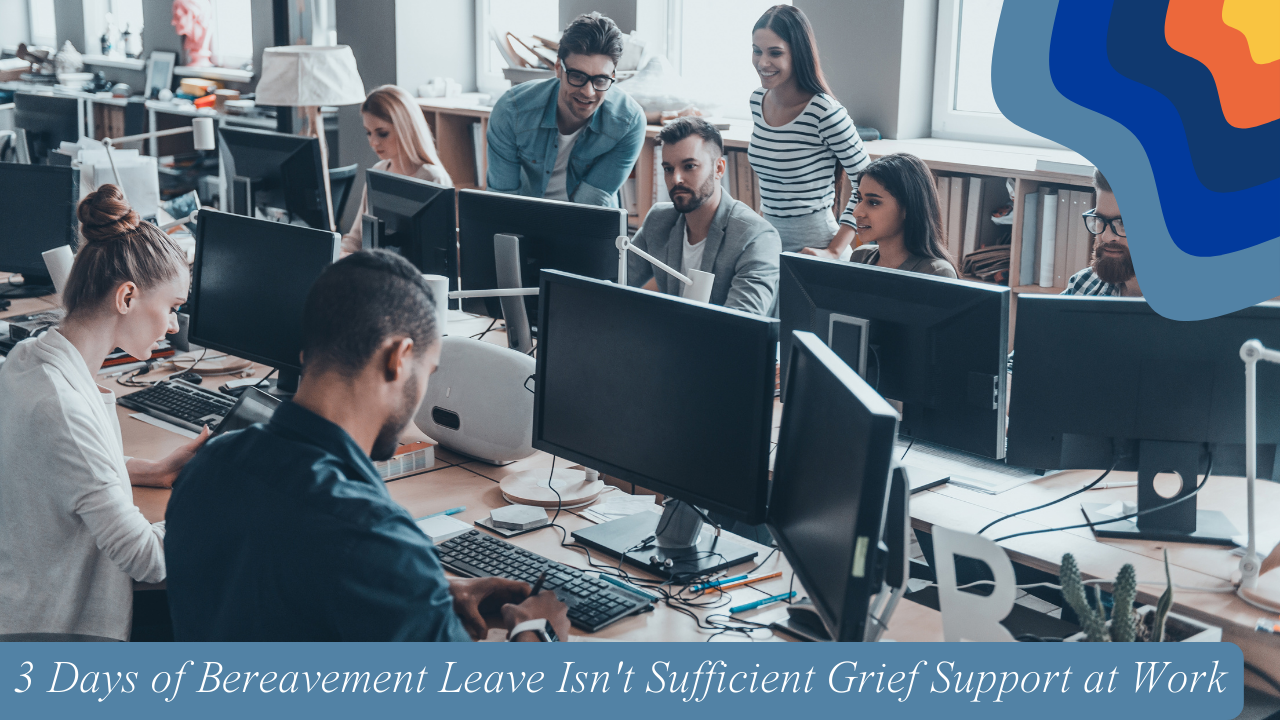3 Days of Bereavement Leave Isn't Sufficient Grief Support at Work
Oct 29, 2023
It's time to turn our attention to an often-unexamined workplace “benefit”: bereavement leave. While we've made strides with family leave enhancements, standard bereavement policies still fall short.
In the U.S., grieving employees traditionally receive between one to five days off, with three days being the most common. Prominent corporations like Goldman Sachs and Liberty Mutual are leading the charge to offer more comprehensive support, granting up to 20 days of bereavement leave and recognizing losses that are often unacknowledged in leave policies, such as pregnancy loss. While these policies reflect a deeper understanding of the full spectrum of grief, there's still room for more.
Recognizing Grief’s Complexity
Addressing the impact of grief in the workplace requires us to first acknowledge its profound impact on an individual’s mental, emotional, and physical well-being. Grief doesn’t look like immediate emotional recovery in those three days of leave – it’s often barely enough time for funeral arrangements. Grief will last beyond that time: it will look like commemoration, reflection, and a rollercoaster of emotions.
Fostering Open Dialogue
To cultivate a supportive environment, we must encourage openness, allowing employees to share their grief appropriately, without fear of professional penalty or personal judgment. Grief shouldn’t be a taboo topic, but rather one that is shared in the workplace as we cultivate a culture of empathy and humanity.
Flexible Support Systems
Effective support extends beyond granting additional leave. Employers can create a holistic support framework, accommodating flexible working hours, remote work options, and even sabbaticals for those navigating grief. Collaboration with grief counselors, offering mental health days, and access to other therapeutic resources can also contribute to a grief-informed support system.
Economic and Emotional Benefits
Investing in extensive bereavement policies isn't only about helping employees in their time of need. There’s tangible value for organizations when they focus on more grief supports: By addressing the emotional and mental turmoil that accompanies bereavement, companies reduce the likelihood of prolonged absences, low morale, and decreased productivity. This strategy is cost-effective in the long run, curtailing potential turnovers and reinforcing employee loyalty and happiness. Good for employees and business? We call that a win-win!
So, how do we get to a world where our workplaces provide more supports for those who are grieving? It starts with each one of us recognizing the profound impact of grief, whether or not we’ve personally experienced a big loss– yet– and advocating for a workplace that empathizes.
Let’s collectively pave the way for policies that dignify the bereavement process, acknowledging the time and support required to grieve.
Join the Grieve Leave movement
Share your info to join our Grieve Leave community. You don’t want to miss anything!


